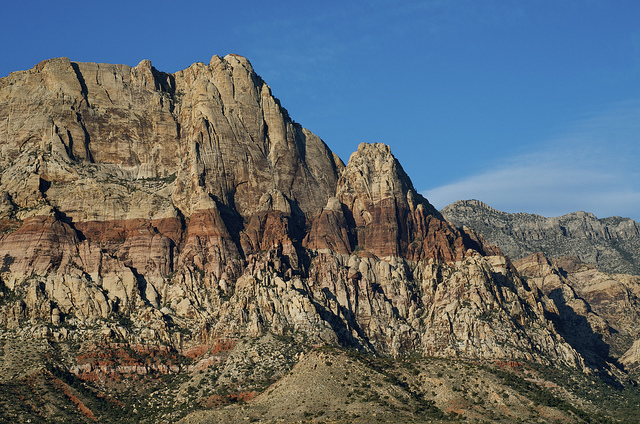
In my class on Gen. 1-3 we still haven’t gotten to verse 27, but we have had an interesting exchange regarding how God created things. This is a very general and intro class but there is one undergraduate who is in his 3rd semester of biblical Hebrew and made an interesting argument: God did not create by decree since the verb עשה is used repeatedly and this verb, meaning “to make,” carries with it the implication that God was using something in his making. This is in opposition to the notion that God simply said “let there be” and it was so. For example, וַיַּעַשׂ אֱלֹהִים אֶת־הָרָקִיעַfrom Gen. 1:7.
I do not know whether this argument is original to my student (I would doubt it, he is only a sophomore after all and just started studying Hebrew) but I had not come across it before. I know there is a whole debate about whether or not God created the cosmos ex nihilo, a debate that Chris Heard and I engaged in a few years ago, but this is a little different. Still, I am not persuaded, for exactly the reasons the student put forward.
Gen. 1:7 follows, of course, 1.6 and that verse begins, וַיֹּאמֶר אֱלֹהִים יְהִי רָקִיעַ בְּתוֹךְ הַמָּיִם. In fact, this pattern is found throughout Gen. 1. The creative action begins with the statement “And God said, ‘Let there be…’.” This phrase is often (but not always!) followed with the statement וַיַּעַשׂ אֱלֹהִים1See, for a nice example, all of Day Three Gen. 1:9-13 where the phrase does not occur at all. Interestingly יהי does not appear there either. So I read this use of עשה as describing the action that went before (God creating through the jussive, as it were) 2In our exceptional case just mentioned, Gen. 1:9-13 we find the jussive form of the verbs for “gathering” and “sprouting.” rather than being the actual act of God’s creating.
I also think the fact that in Gen. 1:26 we have God saying, נַעֲשֶׂה אָדָם בְּצַלְמֵנוּ and the verb ברא used in 1:27 is relevant. Exactly how it is relevant I have not decided yet. Does it indicate God being more active in the creation of humanity? (Perhaps Gen. 1 and 2 are not so different after all in that respect?) Is עשה used because we now have the plural? I am not sure, but I do think it is significant.
I am sure others have commented upon this already and written up thoroughly thoughtful and articulate (not to mention far more scholarly) treatments of the Hebrew text than I can offer here. But what do you all think of my reading? Obviously I think it far more likely than not, but I can be, and often have been, wrong.
- 1See, for a nice example, all of Day Three Gen. 1:9-13 where the phrase does not occur at all. Interestingly יהי does not appear there either.
- 2In our exceptional case just mentioned, Gen. 1:9-13 we find the jussive form of the verbs for “gathering” and “sprouting.”





5 thoughts on “Did God “let it be” or did he “make it so”?”
I’ve thought for some time that the fact that “let there be” is a jussive is also something of a problem, as a third-person command implies a second person. Perhaps these are related problems?
This is interesting because in LDS scripture we have the teaching that God used materials that were already in existence. In fact, we believe that “matter can neither be created nor destroyed”. He “organized” materials that were already in existence.
Does LDS church not address the origin of that original matter?
No, I think that is one of those things that we deem as “not necessary for our salvation”. 🙂 It is enough to know that God created this world. I”m sure that is something we will learn in the next life. 🙂